Introduction
What Do Pigeons Represent: Pigeons, often regarded as ubiquitous urban birds, hold a unique and diverse symbolism in cultures around the world. These unassuming creatures have played significant roles in human history and mythology, and their representation varies widely across different societies. From messengers of peace and love to symbols of fertility, freedom, and even sacrifice, pigeons have found a place in the collective human imagination that transcends their seemingly ordinary presence. We delve into the multifaceted symbolism pigeons, uncovering the rich tapestry of meanings they have woven throughout the ages.
Whether revered as celestial beings or dismissed as common city dwellers, pigeons continue to capture our fascination and inspire contemplation about our relationship with nature and the symbolism we ascribe to it. Throughout history, pigeons have been both revered and reviled, their symbolism often reflecting the prevailing attitudes and beliefs of the societies in which they reside. In ancient times, the pigeon was seen as a symbol of renewal and rebirth, with their ability to lay eggs and care for their young considered a representation of fertility and maternal love.
Pigeons were even associated with goddesses of love and fertility. In Christianity, pigeons have been a powerful symbol of the Holy Spirit. This association traces its roots to the biblical story of Noah’s Ark, where a dove sent out by Noah returned with an olive branch, signaling the end of the flood and God’s forgiveness. The dove, often depicted as a white pigeon, became a symbol of peace and divine guidance. On the flip side, pigeons have also been seen as pests and carriers of disease, particularly in densely populated urban areas. Their abundance in cities has led to varying interpretations, from representing resilience and adaptability.
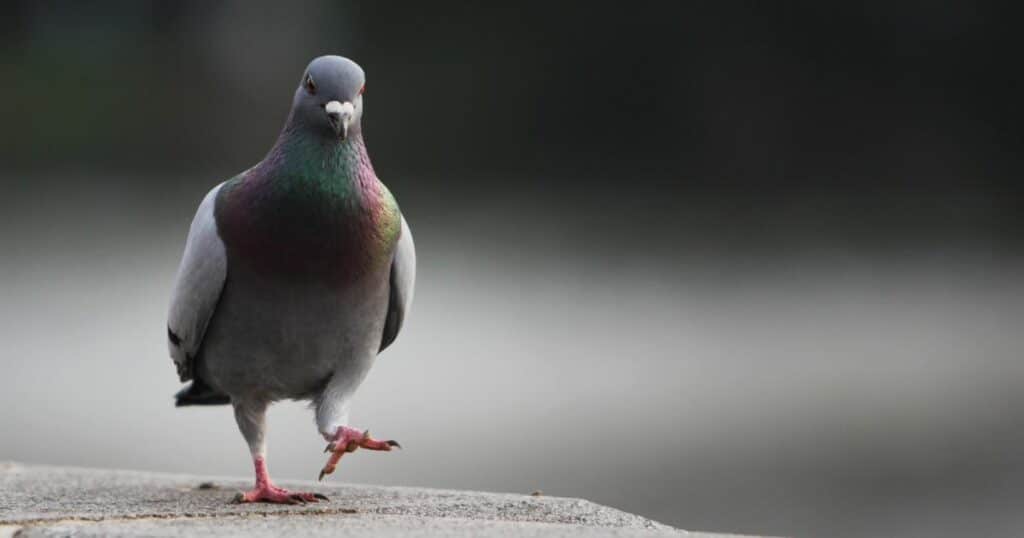
Are pigeons good luck or bad luck?
Yes, when pigeons naturally come and build a nest in your house, it is considered to be auspicious. Vastu experts state that the arrival of birds in the house implies an improvement in life’s fortune. In many cultures, pigeons are considered to be symbolic of fertility and prosperity, fortune, luck, and transformation.
Whether pigeons are considered symbols of good luck or bad luck largely depends on cultural and individual interpretations. In some cultures, pigeons are seen as omens of good fortune and positivity. Their association with peace and love, as well as their role as messengers in history, has contributed to this positive symbolism.
Conversely, in other cultures, pigeons may be viewed less favorably due to their scavenging habits and prevalence in urban environments. Their droppings, which can be a nuisance and cause damage to buildings and vehicles, have led to negative connotations in some contexts. Some people may find joy in feeding and watching pigeons in parks, considering them a source of serenity and natural beauty.
Others may view them as pests that disrupt city life. In essence, whether pigeons are regarded as symbols of good or bad luck is subjective and context-dependent. Their symbolism is as diverse as the cultures and individuals who interact with them, highlighting the complex relationship between humans and these resilient urban birds.
What does it mean when a bird visits you?
Because of their ties to the spiritual world, many also believe birds act as messengers from deceased loved ones or guardian angels. In this case, depending on the situation, you might be getting good or bad news, guidance, support, or other warnings when you come into contact with a bird.
Spiritual Connection: In many spiritual and religious traditions, a bird’s visit is seen as a message from the divine or a sign of spiritual awakening. It can be interpreted as a reminder to stay connected to one’s spiritual path or a message of guidance and protection.
Messenger of Change: Birds are often seen as messengers of change and transformation. Their appearance may signal an impending change in one’s life, whether it’s a personal transformation, the start of a new chapter, or an important decision to be made.
Communication: Birds are known for their songs and calls, and their visitation can symbolize the need for better communication in one’s life. It may suggest the importance of expressing oneself clearly or listening more attentively to others.
Freedom and Liberation: Birds are associated with freedom due to their ability to soar through the skies. Their visitation may symbolize a desire for liberation from constraints, whether they are physical, emotional, or psychological.
Harmony with Nature: Seeing a bird up close can remind us of our connection to the natural world and the importance of living in harmony with it. It may encourage a deeper appreciation of nature and a call to protect the environment.
Why do pigeons come to my balcony?
Balconies are ideal for pigeons to roost, nest, or perch. They are high up, which provides pigeons with a good field of view, helping them feel safe from all the usual dangers. Furthermore, the handrail on a balcony is perfect for perching.
Food Source: Pigeons are opportunistic feeders, and if there is a readily available food source on or near your balcony, such as birdseed, crumbs, or even food scraps, they will be drawn to it. Pigeons are known for their scavenging behavior.
Water: Pigeons need water to drink and bathe. If you have a water source on your balcony, such as a birdbath or even a dripping faucet, pigeons may come for hydration and cleanliness.
Shelter and Nesting: Balconies can provide shelter from the elements, and pigeons may seek out a safe and relatively secluded spot to build nests and raise their young. The ledges and corners of balconies can mimic natural nesting sites on cliffs.
Safe Perch: Pigeons are cautious birds and often seek high vantage points where they can spot potential predators. Balconies offer elevated positions where they can rest and keep an eye out for danger.
Social Behavior: Pigeons are highly social birds, and if one pigeon finds a suitable spot on your balcony, it may attract others. Pigeons often congregate in groups, and their presence can lead to a small flock forming.
What happens if white pigeon comes into your house?
A white pigeon symbolizes peace, love, honor, gentleness, sacrifice, communication, grace. A white pigeon or dove is believed to be a symbol of the Holy Spirit in Christianity. Depending on your beliefs, some would say that a spirit is saying hello to you.
Peace and Harmony: In many cultures, white pigeons, or doves, are seen as symbols of peace, purity, and harmony. Their presence in your home may be interpreted as a sign of tranquility and a reminder to cultivate peace within your living space.
Spiritual Significance: White pigeons are often associated with spirituality and the divine. Some people believe that their sudden entry into your home is a message or blessing from the spiritual realm, offering guidance, protection, or reassurance.
Messages or Omens: In some traditions, birds, including white pigeons, are considered messengers. Their unexpected visit may be seen as a sign that you should pay attention to your surroundings and be open to messages or opportunities that are coming your way.
Symbol of Love: White pigeons are also connected to love and relationships. Their presence can be seen as a positive omen for romantic or familial bonds, suggesting harmony and unity among family members or partners.
Cultural Beliefs: Interpretations can be deeply rooted in cultural beliefs. For example, in Hinduism, the arrival of a white pigeon is associated with auspicious events and is considered a good omen.
Are pigeons good messengers?
Thanks to their unique homing ability, carrier pigeons have long played an invaluable role in war as military messengers and, as technology progressed, photographers. During both the First and Second World Wars, carrier pigeons were used to transport messages back to their home coop behind the lines.
Advantages of Pigeons as Messengers
Homing Instinct: Pigeons are known for their remarkable homing ability, which allows them to find their way back to their home lofts from great distances. This skill has made them valuable messengers throughout history, especially during times of war.
Reliability: Pigeons are generally reliable messengers when well-trained and cared for. They are less susceptible to interference or interception compared to electronic communication methods.
Silent Communication: Unlike noisy machinery or shouting, pigeons can carry messages quietly, making them useful for secretive or discreet communication.
Limitations of Pigeons as Messengers
Speed: Pigeons are not particularly fast compared to modern communication methods. Messages may take longer to reach their destination, which can be a drawback in urgent situations.
Limited Message Capacity: Pigeons can only carry small, lightweight messages, making them unsuitable for transmitting large volumes of information.
Weather and Predators: Pigeon messengers are vulnerable to adverse weather conditions, such as storms or heavy fog, which can disrupt their flights. Additionally, they can fall prey to predators during their journeys.
One-Way Communication: Pigeons can carry messages to a specific location, but they cannot provide a means for two-way communication. They are essentially one-time-use messengers.
What does it mean if a pigeon comes to your window?
There are different meanings behind this, as every culture is different, but it often means that a pigeon hitting your window is a sign of change. There will be a significant transition in your life. It could also be a message from a lost loved one.
Messenger of Peace: In various cultures, pigeons, especially white doves, are symbols of peace and harmony. The presence of a pigeon at your window may be seen as a positive sign, representing tranquility and a reminder to foster peace in your life or surroundings.
Spiritual Connection: Some individuals view pigeons as carriers of spiritual messages. A pigeon at your window might be perceived as a sign from the spiritual realm, suggesting guidance, protection, or divine communication.
Close Connection with Nature: Pigeons often inhabit urban environments and are comfortable around human structures. Their visit may serve as a reminder of the coexistence of nature and the city, encouraging you to appreciate the natural world even in urban settings.
Curiosity: Pigeons are known for their inquisitiveness, and their visit could simply be driven by curiosity about the inside of your home or the surroundings outside your window. They may be attracted by reflections, movement, or food scraps.
Personal Interpretation: Ultimately, the significance of a pigeon at your window is highly personal. It might symbolize something unique to your own life experiences, emotions, or beliefs.
Why do pigeons hang around my house?
‘Pigeons are attracted to spaces that provide them with shelter and a food source,’ says Darren Backhouse of MJ Backhouse Pest Control.
Food Source: One of the primary reasons pigeons gather around houses is the availability of food. Pigeons are opportunistic feeders and are particularly drawn to places where they can find easy access to birdseed, crumbs, food scraps, or even intentional feeding by homeowners. Once pigeons discover a consistent source of food, they tend to return regularly.
Shelter and Nesting Sites: Houses provide sheltered nooks and crannies that pigeons find suitable for nesting and roosting. Their ledges and eaves can resemble natural nesting sites on cliffs. Pigeons are known for their adaptability to urban environments, and your house may offer them a safe haven for breeding.
Water Sources: Pigeons need water not only for drinking but also for bathing. If your house has water features like birdbaths, fountains, or even dripping faucets, pigeons may visit to quench their thirst and maintain their hygiene.
Protection from Predators: Houses and other buildings can offer protection from natural predators such as hawks and eagles, which may explain why pigeons choose to frequent these structures. The elevated vantage points also allow them to keep an eye out for potential threats.
Social Behavior: Pigeons are highly social birds and often gather in groups. The presence of one pigeon can attract others, leading to a congregation around your house.
Which god is related to the pigeon?
Kaalratri, a form of Kali, rides a donkey. Kama and his wife, Rati, have the parrot as their vahana. Rati is sometimes shown riding a pigeon.
Aphrodite Venus: In Greek and Roman mythology, Aphrodite or Venus in Roman mythology is the goddess of love, beauty, and desire. She is often depicted with doves, which are symbols of love and fertility. Doves were sacred to her and represented the divine aspects of love and desire.
Hera: In Greek mythology, Hera, the queen of the gods and the goddess of marriage and childbirth, was associated with doves. Doves were considered sacred to her and were believed to be her messengers.
Holy Spirit: In Christianity, the dove is often associated with the Holy Spirit, the third person of the Holy Trinity. The dove is a symbol of peace and divine guidance, and its appearance in the Bible, such as during Jesus’ baptism, is seen as a manifestation of the Holy Spirit.
Isis: In Egyptian mythology, Isis, the goddess of magic, healing, and motherhood, was sometimes depicted with doves, which symbolized her nurturing and protective qualities.
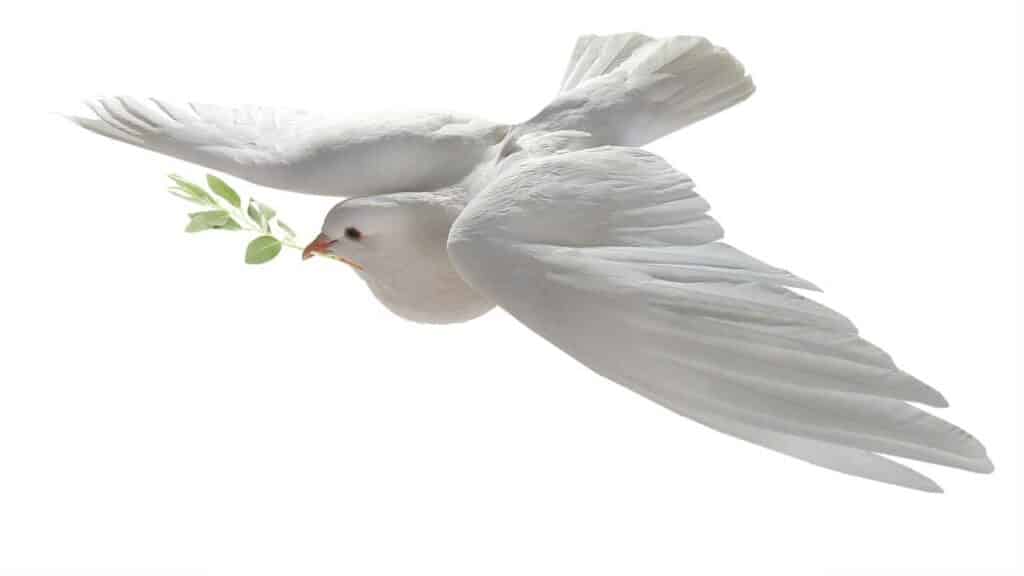
Conclusion
Pigeons, with their unassuming presence and widespread distribution, serve as a fascinating canvas upon which humanity has painted a diverse array of meanings and symbolism throughout history. These birds have transcended their seemingly ordinary status to become powerful symbols in cultures around the world. Pigeons represent a rich tapestry of interpretations, often reflecting the prevailing values, beliefs, and challenges of the societies that have interacted with them. From symbols of peace, love, and fertility to representations of resilience, adaptability, and sacrifice, both as revered celestial beings and as common city dwellers.
Their role as messengers of hope during times of war, as well as their association with the divine in various religious traditions, further underscores the complexity of their symbolism. Pigeons challenge us to consider our relationship with nature and the significance we ascribe to the creatures that share our world. Pigeons serve as a reminder that the meaning we attach to the natural world is not static but evolves alongside our cultures and beliefs. These unassuming birds continue to captivate our imaginations, inviting us to explore the intricate web of symbolism that they have woven throughout human history.
The symbolism extends beyond their historical and cultural representations. In the modern world, pigeons have taken on new significance as symbols of urban life and adaptation. Their ability to thrive in bustling city environments, often overlooked or dismissed, can be seen as a metaphor for human resilience in the face of rapid urbanization and environmental challenges. Pigeons also offer us valuable lessons about coexistence with wildlife in urban settings. They prompt us to consider the delicate balance between preserving natural habitats and accommodating the needs of a growing global population.

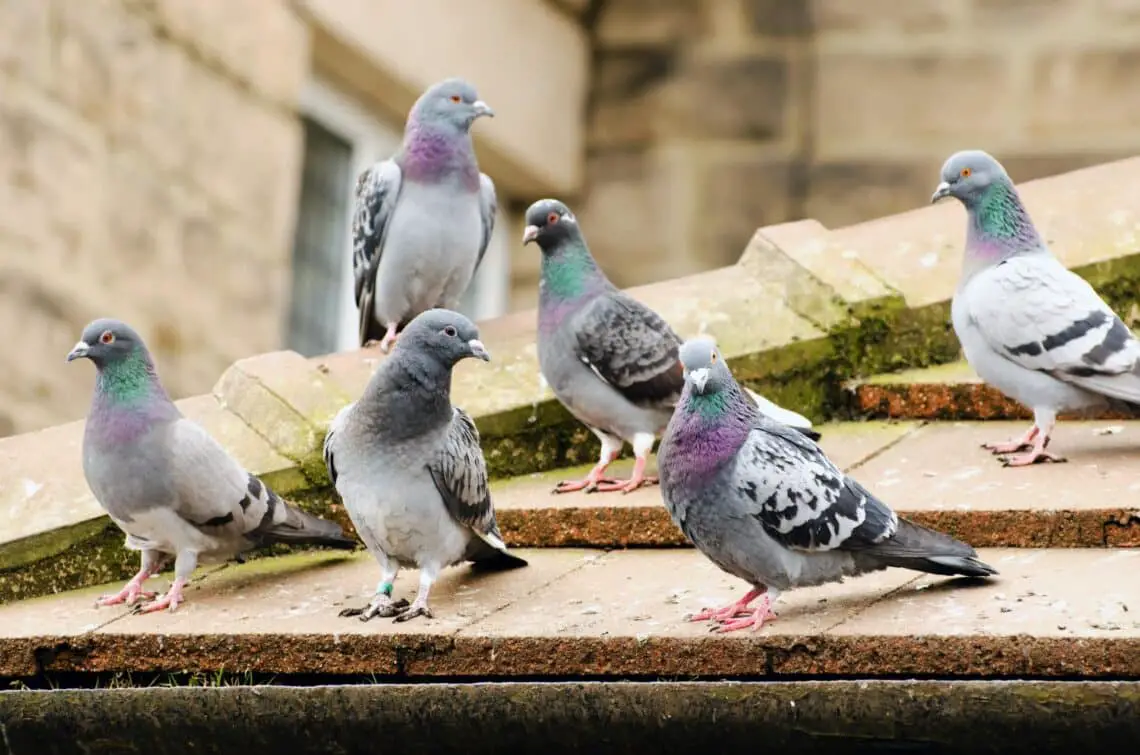
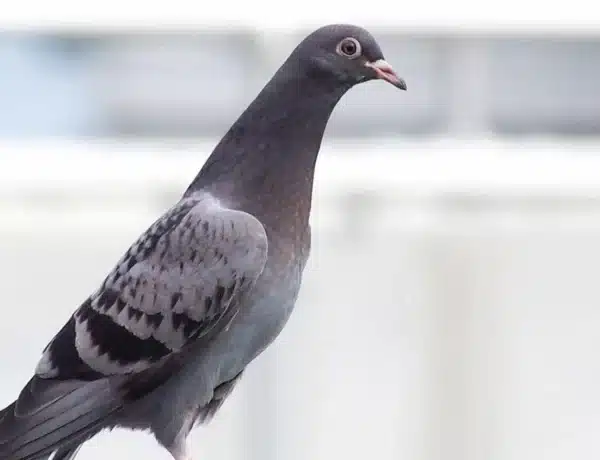

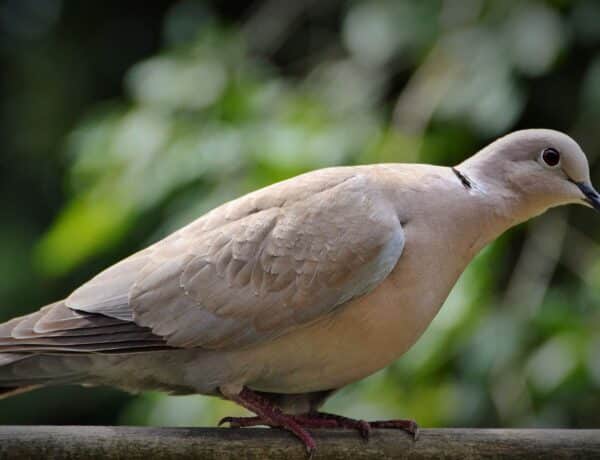
No Comments